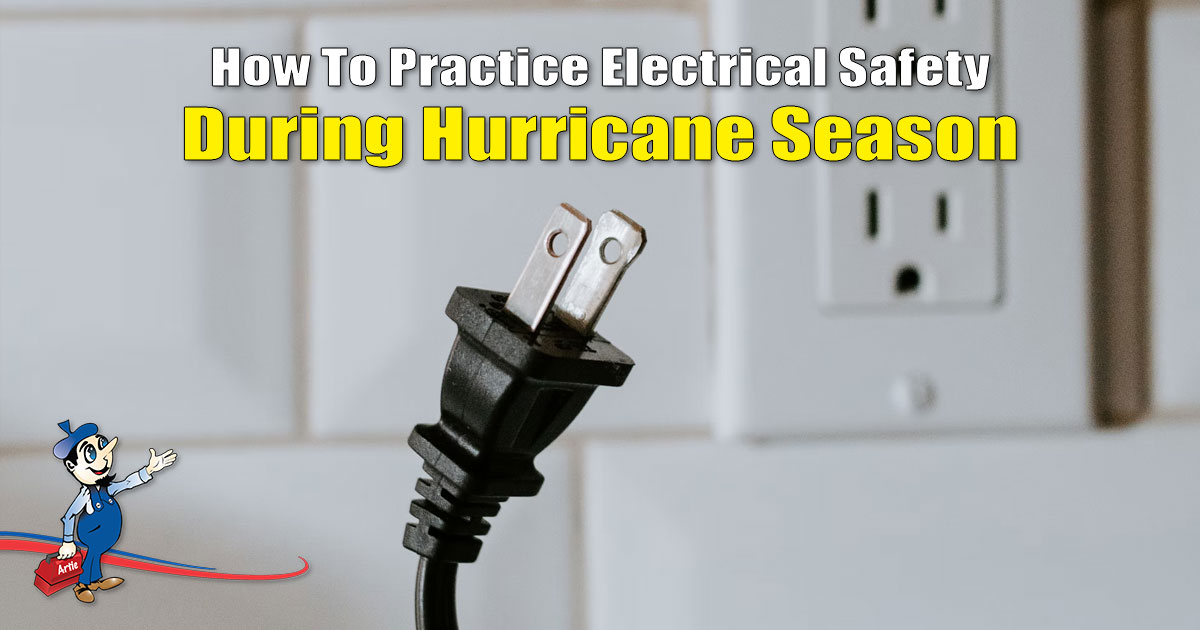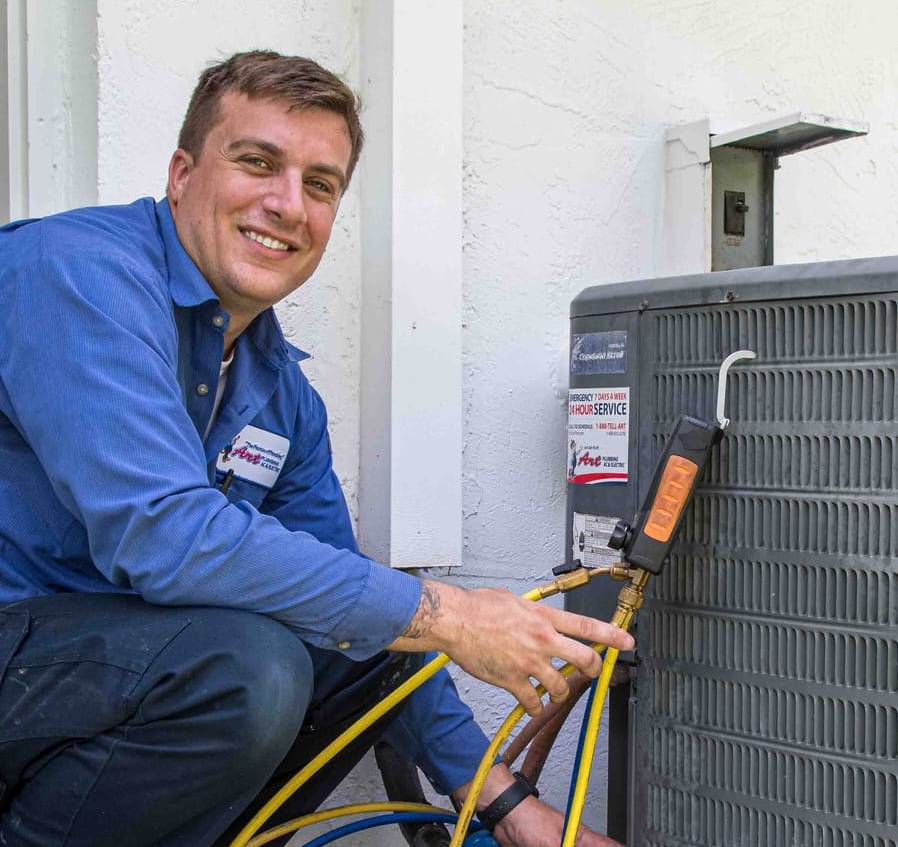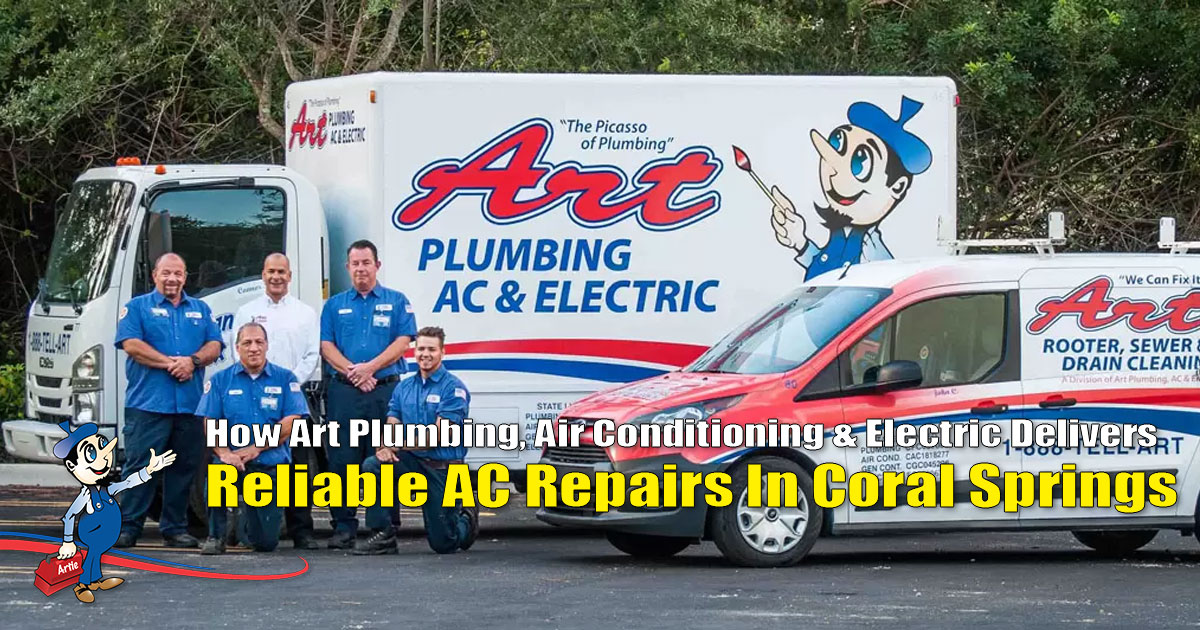How To Practice Electrical Safety During Hurricane Season

When it comes to hurricane season, the majority of South Florida homeowners feel confident that they have made all the necessary preparations. They have plans for protecting their homes, their personal property, and their family. Most have lists of emergency contact numbers and a solid evacuation plan. Everything appears to be in order, right?
WRONG! Unfortunately, people fail to plan for one of the most dangerous hazards that accompany hurricane season, electrical safety. They have no system in place to ensure that their electrical system is safe before a hurricane, and forget about what electrical dangers await them during and after the storm.
Electrical Safety During Hurricane Season
Electrical hazards are often an issue long after the storm has passed, so it’s vital to have electrical safety systems in place for before, during, and after the storm.
Before The Storm
When it comes to electrical safety, having a checklist, that everyone is familiar with, is essential.
Things that could be listed on the checklist include:
- Regular schedule to check electrical safety switches.
- Regular schedule of tree and foliage trimming near power lines and electrical boxes.
- Outside electrical panels and wiring need to be secured and insulated.
- Learn where the electrical panel in your home is, and how to switch off the electrical main switch.
- The location of a safe, dry place, preferably elevated, that most of your electrical appliances can be moved to during a storm.
- A list of all indoor and outdoor electrical appliances and equipment that will be unplugged and relocated in the event of a storm. Having a list of these items reduces the risk of something being forgotten.
- A schedule to start and check the electrical generator. It is advisable to have a professional electrician check and maintain it annually.
- Everyone should have basic first aid knowledge; it is not uncommon for people to panic in an emergency. Having a step-by-step list of First Aid procedures that can be referred to in an emergency, could save someone’s life.
During The Storm
South Florida residents are no strangers to severe storms and the chaos they leave in their wake.
The three natural elements that come into play during a storm are:
- Lightning
- Floods
- Strong Winds
Each of these elements has significant risks attached when it comes to electrical safety. Here are a few electrical safety tips to minimize these risks:
Electrical Safety When There Is A Lightning Storm
The most important thing to remember during a lightning storm is to start acting as soon as you hear the first thunderclap.
- Unplug all electrical appliances. Appliances still connected to the electrical circuit during a lightning storm can suffer damage.
- Water is a very good conductor of electricity, so avoid contact with water, faucets, sinks, or plumbing at all costs. DO NOT bathe or shower during a storm.
- Avoid using any electrical equipment that is still connected to the electrical circuit, during a storm. This includes corded telephones and gaming earphones.
Electrical Safety Tips For During/After A Flood
Floodwaters often transport debris, chemicals, oil, and other electrical hazards. The water and the hazards it transports can cause electrical damage to your appliances and electrical circuit. If you suspect rising water levels or flooding during a storm, unplug and elevate electrical appliances, and cover electrical outlets with safety plugs.
A qualified electrician must first inspect all electrical appliances that have been submerged before they are used. If they come into contact with water, the following must also be inspected before being used:
- Electrical outlets
- Circuit breakers
- Electrical fuses
- Plugs
- Electrical switches
- Ground Fault Circuit Interrupters



